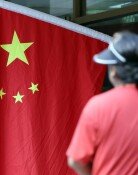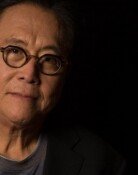China causes be targeted by trilateral security systems i
China causes be targeted by trilateral security systems i
Posted November. 14, 2022 07:54,
Updated November. 14, 2022 07:54
South Korean President Yoon Suk-yeol held a bilateral meeting with U.S. President Joe Biden and Japanese Prime Minister Fumio Kishida, separately, and a trilateral talk with the two leaders on Sunday in Phnom Penh, Cambodia, to reach an agreement for the strengthening of trilateral security-related cooperation amid the nuclear and missile threats from North Korea. The three heads of state agreed that a comprehensive range of pressure should be put on China which has provided protection to the regime. U.S. President Biden plans to have his first face-to-face meeting on Monday to ask it to fulfill its responsibilities for resolving North Korea nuclear issues.
A series of summit talks on Sunday aimed to reaffirm their determination to bolster and expand trilateral cooperative systems for security matters against North Korea’s escalating provocations. Although the last thing that Beijing wants is a stronger trilateral cooperative relationship in terms of security among Seoul, Washington, and Tokyo, it seems to be in an awkward position as it has only turned a blind eye to Pyongyang’s wrongdoings and tried to take sides with the regime. With tension growing over an imminent 7th North Korean nuclear test, China may have to be anxious about being targeted by the trilateral security cooperative system.
Washington has recently made it clear that it will keep looking at not only Pyongyang but also Beijing more closely military-wise. U.S. National Security Advisor to the White House Jake Sullivan commented before a U.S.-China summit talk that if Pyongyang keeps walking this path, Washington will inevitably have to strengthen the stationing of forces for military and security reasons in the region. He also described trilateral security cooperation as the power not only to respond to a common threat from North Korea but also to enhance regional peace and stability. Clearly, this message implies that the U.S. government will expand U.S. forces and the arrangement and deployment of arms to become militarily stronger across the region, which means that its target goes beyond North Korea to China to keep its military power at bay due to Beijing’s behind-the-scenes influence.
Losing all hope for China’s role, the South Korean government now seems to join the United States and Japan in keeping China in check. President Yoon shared common values and goals with Washington and Japan in the ASEAN summit talks by making explicit remarks on China such as zero tolerance for changes in circumstances by power and the freedom of navigation in the South Pacific Ocean. As such, North Korea’s reckless provocations have only caused Seoul to get closer to Washington, leaving behind concerns over diplomatic tensions with Beijing, the dispute between Tokyo and Seoul over wartime wrongdoings, and trade discrimination issues between Seoul and Washington.
China strongly argues that there is only so much it can do to influence the regime. However, it is an obvious fact that it has offered a shield to North Korea let alone hold the regime accountable for taking reckless action as if it aimed to put Northeast Asia on the frontlines of the rising New Cold Era. Thus, it is time that Beijing should prove that it can play a constructive role in ensuring denuclearization by walking the walk, not talking the talk.





![먼지인 줄 알았더니…서랍 구석 ‘해충 배설물’ 습격 [알쓸톡]](https://dimg.donga.com/c/138/175/90/1/wps/NEWS/IMAGE/2025/12/19/133001422.3.png)
![“아무리 씻어도 안 빠져” 김치통 냄새, □□으로 싹 [알쓸톡]](https://dimg.donga.com/c/138/175/90/1/wps/NEWS/IMAGE/2025/12/18/132993861.3.jpg)
